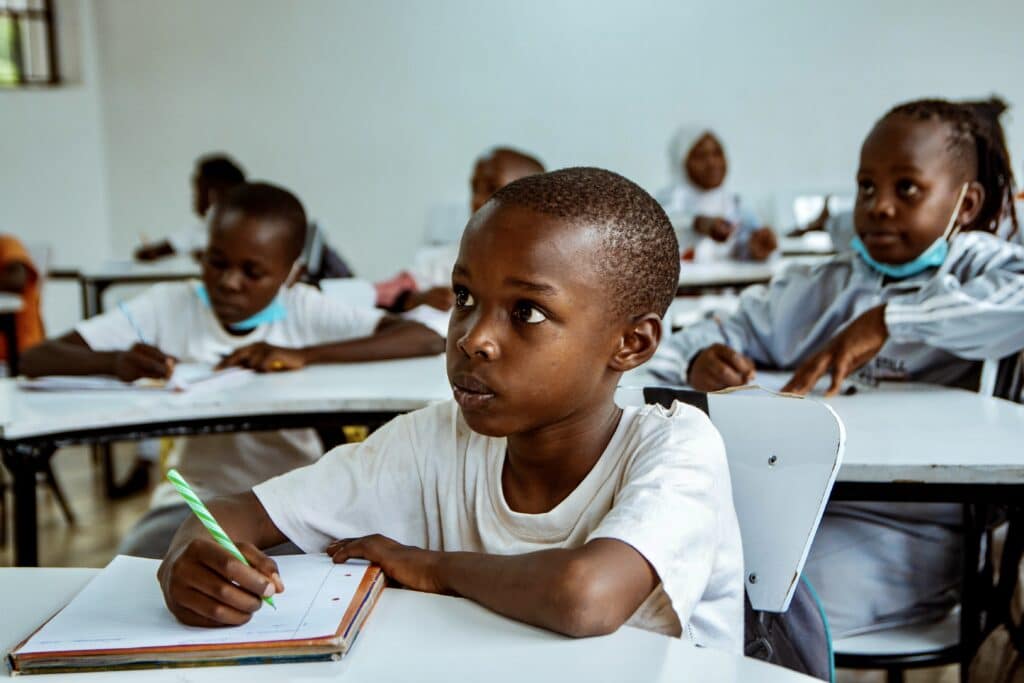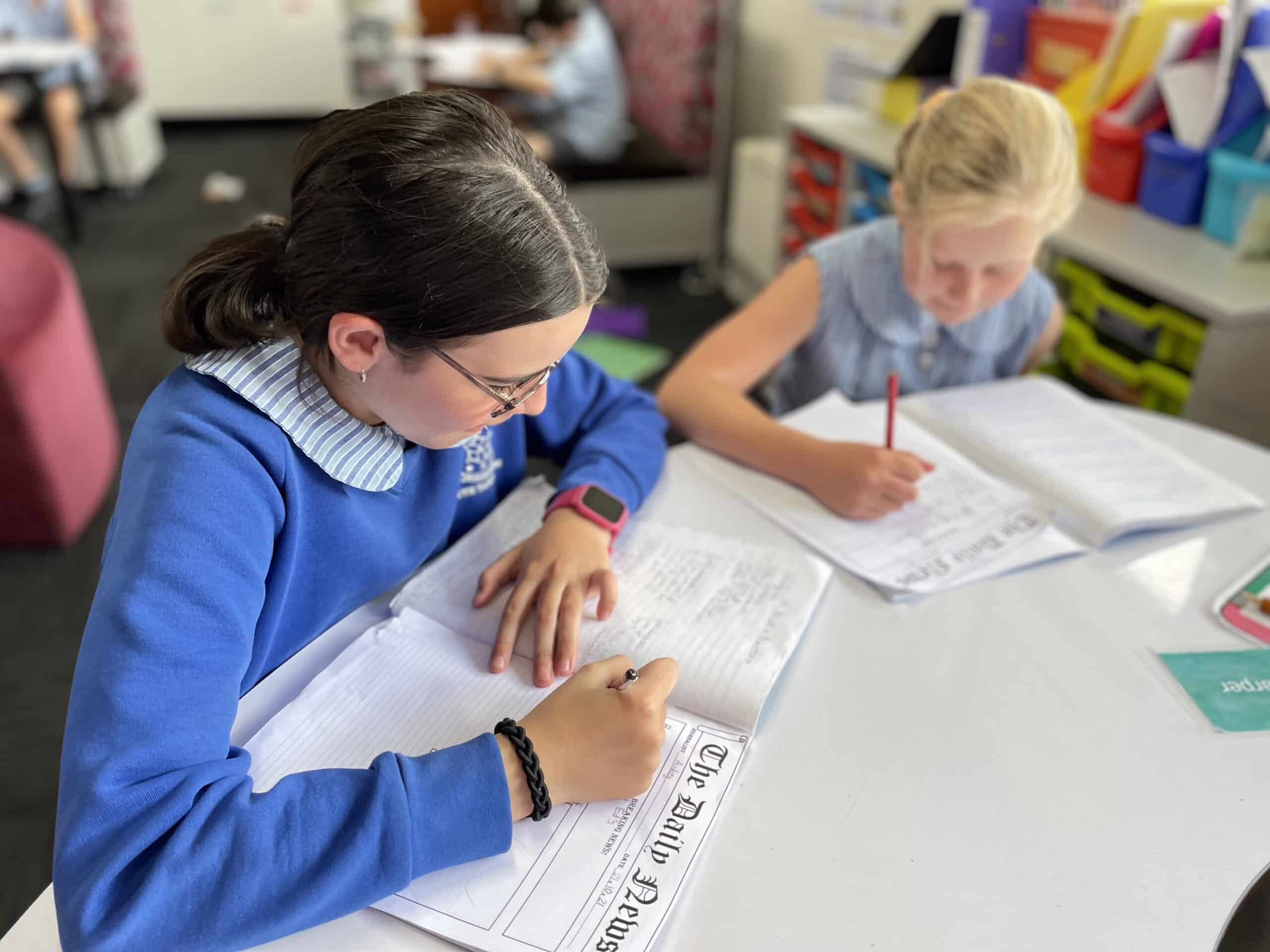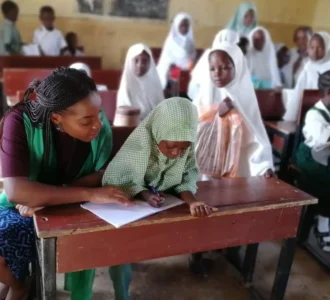Questioning the world has never been more important. And young people are often full of questions. Schools can play a vital role in their journey by sparking students’ curiosity in journalism.
Our friends at The Day, the daily newspaper for young people, has launched its third annual Global Young Journalist Awards and we are encouraging teachers in our community to get their students involved. The competition is free to enter for young people aged between seven and 18 from all over the world and is open to all media formats including written articles, photography, illustration, audio-video and graphic design.
I spoke to Aimee Marshall, English teacher and Enrichment Leader at The Priory Academy LSST in Lincolnshire, UK – which has already seen two of its students win the prestigious awards.
Salman Shaheen: Why do you think it’s important to encourage young people to go into journalism today?
Aimee Marshall: Encouraging young people to go into journalism is more important than ever as it equips them with the skills required to tell their own stories and gives them the confidence to join in on the conversations taking place about politics, social change and so on. Young people often feel that their voices are not heard on these matters, so to give them the opportunity to articulate their own opinions through the art of journalism is vital if we want to teach them to be active citizens in their communities. Not only that, but it is empowering for young people to feel as though they are being listened to and that their views matter.
One of the most exciting and appealing prospects of journalism is the scope for creativity. Whether through written articles, photography or film, students are able to envision and enact the change they wish to see in the world. At the Academy, we strongly believe that it is our job to encourage this level of participation in the world around us in order to create a more connected, tolerant and empathetic society.
Salman Shaheen: How do you think schools can best encourage their students to go into journalism?
Aimee Marshall: We hope to encourage our students to go into a career in journalism by fostering a strong reading culture across the Academy and by using every opportunity to engage with journalism across the curriculum. For example, many of our form tutors use The Day during Personal Development time in the mornings to inform their students on current affairs. As an Academy, we have also involved The Day in our Enrichment Passport, meaning that engaging with journalism is now a part of our school House system (linked to our Academy values) as students can gain rewards from reading articles and discussing their thoughts with their form tutors.
As part of our wider curriculum, all students are encouraged to engage with journalism in their Library research lessons. These sessions aim to teach students how to properly investigate topics in order to develop a well-rounded and well-informed understanding. Teaching our students how to do this encourages them to confidently consider their own viewpoints and perspectives on current affairs after engaging with a range of material, therefore putting them in a better place to comment on what is happening in the world around them and generating excitement around this idea as a future career prospect.
Salman Shaheen: Your school has had two winners of the Global Young Journalist Awards. Can you tell us about their stories?
Aimee Marshall: It has been an honour to showcase our students’ achievements and recognise their talent and hard work as part of the Global Young Journalist Awards. We are incredibly proud of their accomplishments.
Zohra, International Journalist of the Year 2022 Winner, wrote a thought-provoking and harrowing article about the dismal state of Afghan women’s education after the Taliban entered the capital: “The silenced women under the Taliban.”
William, Technology Journalist of the Year 2023 Winner, wrote an innovative article about the revolutionary future of Virtual Reality to treat disordered gambling using cue exposure therapy: “Betting on Virtual Reality: Treatment of the Future.”
Salman Shaheen: What do the Global Young Journalist Awards mean to you? What are you hoping your school will get out of them this year?
Aimee Marshall: Our Trust’s mission is to improve the life chances of our students so they become true citizens of the world. The Global Young Journalist Awards give us the opportunity to do this by expanding on the current affairs and topics already covered as part of our Personal Development programme, including the #MeToo movement, Black Lives Matter and the Hillsborough Disaster. The main aim of these sessions as part of our PD programme is to alleviate any concerns students may have due to the changing world around them and to signpost suitable support. The Global Young Journalist Awards takes this one step further and gives our students the chance to dig deeper into the topics that interest them most through a more investigative and critical lens.
This year, we are planning to increase our engagement with the Awards by including it in our Personal Development programme so more subjects can get involved and submit entries in different formats. For example, we are hoping to see our A Level Photography and English Language students getting involved as part of their further studies and practice. In previous years, we have focused on our Key Stage 3 cohort when launching the Awards, however this year we are expanding this opportunity to include our Key Stage 4 and 5 students, as well as incorporating it within the Academy using the House System. We have many Sixth Form students wishing to enter a career in journalism and we believe it would be a valuable and enriching experience for them, as well as being a fantastic opportunity to bridge the gap between the Key Stages by encouraging our Sixth Form cohort to actively participate in the House System.
Salman Shaheen: What would you say to schools in our global community who might be considering participating in the Global Young Journalist Awards?
Aimee Marshall: As an Academy, we have found that participating in the Global Young Journalist Awards has provided a fantastic opportunity to expand our current curriculum and gain external recognition for our students. Empowering our young people by celebrating their successes is at the core of what we do and we hope to continue to share their stories in the future.




